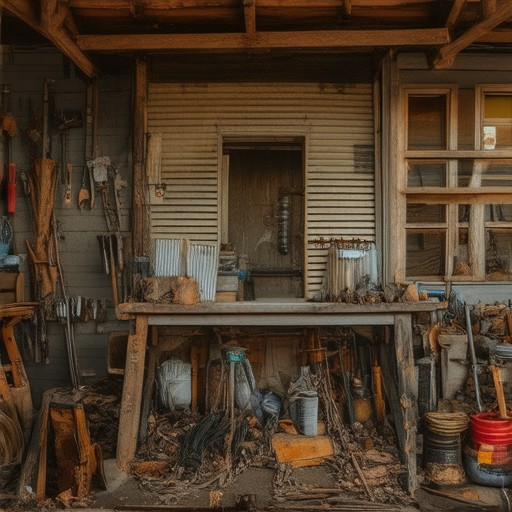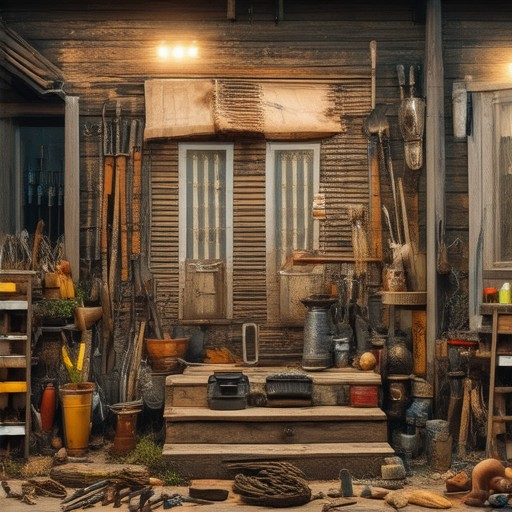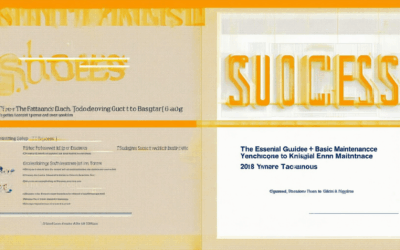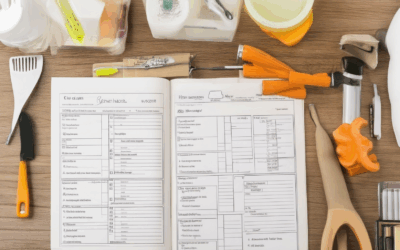Routine house care is essential for maintaining the health and longevity of your home, ensuring that minor issues don’t escalate into major repairs. By establishing a consistent routine, homeowners can protect their investment, save money, and live in a safer environment. Whether it’s weekly cleaning, monthly inspections, or annual maintenance, a well-planned schedule helps prevent unexpected problems and keeps your living space in top shape. This guide answers common questions about routine house care, providing practical advice on creating a maintenance plan that works for you. From understanding what should be included in a routine to evaluating the costs associated with home upkeep, this comprehensive resource offers insights for every homeowner. Discover how a structured maintenance schedule can save time, reduce stress, and extend the life of your home.
Key Takeaways
– Effective house care prevents costly issues and keeps your home in top shape.
– Regular maintenance saves money and extends your home’s lifespan.
– A well-maintained home increases property value.
– Create a personalized maintenance plan today.
– Budgeting tips ensure you’re prepared for unexpected repairs.
– In-house maintenance boosts efficiency and control.

Regular House Maintenance Checklist
Keeping your house in great shape requires consistent effort. Here’s a detailed guide to the essential maintenance tasks you should perform regularly:
- Exterior Maintenance
- Roof Inspection: Check for missing or damaged shingles and inspect for signs of wear. Twice a year.
- Wall Checks: Look for cracks, peeling paint, or signs of structural issues. Monthly.
- Foundation Inspections: Examine for cracks or shifting. Annually.
- Gutters and Downspouts: Clean out debris and check for proper water flow. Seasonally.
- Driveways and Walkways: Repair cracks and level uneven surfaces. Annually.
- Heating, Ventilation, and Air Conditioning (HVAC)
- Air Filter Replacement: Change every 1-2 months or as directed by the manufacturer.
- Ductwork Inspections: Look for leaks or dust buildup. Yearly.
- Water Heater Maintenance: Check for leaks and ensure proper operation. Annually.
- Plumbing System
- Pipe Inspections: Check for rust or corrosion. Look for leaks under sinks and around pipes. Monthly.
- Water Pressure Testing: Ensure it’s within safe limits (typically 40-80 psi). Yearly.
- Appliance Maintenance: Clean lint traps, check dishwasher drain lines, and service hot water tanks. Seasonally.
- Electrical Systems
- Outlet and Switch Inspections: Test for functionality and safety. Monthly.
- Circuit Breaker Checks: Ensure they’re operating correctly. Annually.
- Lighting Fixtures: Replace bulbs and inspect wiring. Seasonally.
- Fire Safety Measures
- Smoke Detector and Carbon Monoxide Detector Tests: Ensure they’re working properly. Monthly.
- Fire Extinguisher Checks: Keep them charged and functional. Annually.
- Landscape Maintenance
- Grass and Tree Care: Trim trees and bushes regularly. Keep grass trimmed. Seasonally.
- Irrigation System Checks: Ensure efficient water distribution and prevent overwatering. Annually.
- Window and Door Maintenance
- Weather Stripping and Screens: Check for drafts and replace torn screens. Seasonally.
- Door Hinges and Locks: Lubricate and test functionality. Annually.
- Chimney and Ventilation
- Chimney Inspections: Check for blockages or damage. Annually.
- Ventilation System Checks: Ensure proper airflow and no obstructions. Yearly.
- Attic and Basement Inspections
- Mold and Moisture Checks: Look for signs of mold growth and water damage. Seasonally.
- Structural Integrity: Check for sagging or uneven floors. Annually.
- Water Management
- Leak Detection: Check pipes and hoses for leaks. Monthly.
- Sump Pump Functionality: Ensure it’s working properly to prevent basement floods. Annually.
- Rain Gutter and Downspout Checks: Clear debris and ensure proper drainage. Seasonally.
- Personal Safety
- Trip Hazards: Fix loose rugs, uneven flooring, or staircases. Regularly.
- Security Systems: Test alarms and cameras. Annually.
What is Routine Housework?
Routine housework refers to the regular cleaning and maintenance tasks necessary to keep a household environment clean, organized, and comfortable. Effective routine housework helps maintain hygiene, reduces stress, and ensures the longevity of your living spaces. Below is a detailed breakdown of essential components of routine housework, along with practical tips to streamline the process.
Weekly Cleaning Tasks
Establishing a consistent weekly cleaning schedule can significantly reduce the workload and ensure nothing is overlooked. Here’s a sample routine:
- Monday – Bathrooms: Clean toilets, showers, and bathtubs. Scrub sinks, mirrors, and tiles.
- Tuesday – Dusting: Remove cobwebs, dust furniture, shelves, and surfaces.
- Wednesday – Vacuuming: Clean carpets, rugs, and hard floors. Empty vacuum bags regularly.
- Thursday – Floors: Mop and sweep floors, including entryways and high-traffic areas.
- Friday – Miscellaneous: Tackle laundry, empty trash, and sanitize recycling bins.
- Saturday – Deep Cleaning: Wash bedding, towels, and curtains. Clean windows and blinds.
Daily Routine Add-Ons
Incorporate quick daily tasks to maintain cleanliness between major cleaning days:
- Morning: Wipe countertops, sink, and toilet.
- Evening: Pick up clothes, sweep floors, and spot clean spills.
Monthly Maintenance
Address deeper cleaning tasks that don’t require a full day:
- Clean inside and outside of ovens and microwaves.
- Sanitize bathrooms and kitchens to prevent mold growth.
- Replace or wash air filters and HVAC systems.
Efficiency Tips
To make routine housework manageable, adopt these strategies:
- Use microfiber cloths for dusting and mopping.
- Invest in a reliable vacuum cleaner with HEPA filters.
- Batch tasks by similar activities to minimize decision fatigue.
- Schedule cleaning sessions during low-energy times, like after meals.
Why Routine Housework Matters
A well-maintained home contributes to better mental health and productivity. Regular cleaning prevents accumulations of dirt and grime, reducing allergens and bacteria. It also extends the lifespan of appliances and surfaces by preventing wear and tear.
By implementing a thoughtful routine, you can enjoy a cleaner, more inviting living space year-round. Remember to adjust your schedule based on your family’s lifestyle and preferences to find what works best for you.

What is a Routine Maintenance Plan?
A routine maintenance plan is a structured approach to preserving the condition and functionality of your property through consistent, preventive measures. Regular maintenance ensures that systems remain operational, assets last longer, and potential issues are addressed before they escalate. Whether it’s a residential property, commercial space, or industrial facility, a well-executed routine maintenance plan is essential for long-term sustainability and cost efficiency.
Here’s a breakdown of key components:
- General Principles: Establish a schedule tailored to your property’s unique needs. Common intervals include monthly, quarterly, or annual checks depending on the type of property and its systems.
- Property-Specific Examples:
- Residential Properties: Check smoke detectors, test appliances, and inspect for leaks or pests. Rotate food in pantries and verify inventory levels.
- Commercial Spaces: Schedule HVAC filter changes, inspect electrical systems, and perform fire safety checks. Maintain plumbing and ensure security systems are functioning.
- Industrial Facilities: Conduct regular equipment inspections, monitor wear and tear on machinery, and check for signs of corrosion or damage.
- Tools You Need: A basic toolkit including multi-meter, flashlight, screwdrivers, and adjustable wrenches. Consider specialized tools for larger properties or specific systems.
- Frequency Guidelines: Refer to manufacturer manuals and local regulations for specific schedules. General guidelines may include weekly cleaning, bi-monthly inspections, and quarterly deep cleans.
- Best Practices: Keep records of maintenance activities, including dates and findings. Use checklists to ensure nothing is missed during inspections.
Routine maintenance also extends to seasonal preparation. For example, preparing HVAC systems for winter or cooling systems for summer can prevent costly repairs and ensure energy efficiency. Always consult professionals if tasks require advanced expertise or specialized knowledge.
By implementing a routine maintenance plan, you not only extend the lifespan of your property but also enhance safety, comfort, and reliability. Whether you handle maintenance yourself or hire professionals, consistency is key to maintaining peak performance and preventing unexpected issues.

What is House Care Maintenance?
House care maintenance refers to the routine tasks and activities required to keep a residential property in good condition. This includes inspecting, testing, diagnosing, and repairing systems and components to ensure everything functions properly and remains durable. Regular maintenance helps prevent minor issues from escalating into major problems, saving money and ensuring the safety and comfort of residents.
Types of House Care Maintenance
- Property Inspections: Regularly checking for signs of wear and tear, leaks, or damage in structural components like roofs, walls, and foundations.
- System Testing: Evaluating the performance of critical systems such as plumbing, electrical, HVAC (heating, ventilation, and air conditioning), and appliances to ensure they operate efficiently and safely.
- Repairs and Improvements: Addressing identified issues through necessary repairs or upgrades to enhance functionality and longevity.
- Landscaping and Yard Care: Maintaining outdoor spaces, including gardens, lawns, and exterior surfaces, to preserve the property’s appearance and usability.
Why House Care Maintenance Matters
- Prevents Major Issues: Early detection of potential problems can save costs and reduce stress later on.
- Saves Money: Regular maintenance often leads to fewer unexpected repair expenses.
- Ensures Safety: Timely repairs and inspections help prevent accidents and hazards.
- Increases Property Value: A well-maintained home typically appeals more to buyers and renters.
Getting Started with House Care Maintenance
- Create a maintenance schedule to address different aspects of your home regularly.
- Learn basic DIY skills to handle small repairs yourself.
- Hire professionals for specialized tasks that require expertise, such as plumbing or electrical work.
- Visit Sams Maintenance for detailed guides and resources to help you manage home maintenance effectively.
By understanding and consistently performing house care maintenance, homeowners can protect their investment, enjoy a safe living environment, and maximize their property’s value over time.
How Much Should I Pay for House Maintenance?
To determine an appropriate budget for house maintenance, consider the following factors:
- Percentage of Home Value : A common recommendation is to allocate 1% to 4% of your home’s value for maintenance. This ensures funds are available for unexpected repairs and routine upkeep.
- Home Condition and Age : Older homes may require more frequent and costly repairs, potentially increasing your maintenance budget needs.
- Location and Local Costs : Factors such as climate, local building codes, and labor rates can influence maintenance expenses.
- DIY vs. Professional Help : Doing tasks yourself can save money but may require more time and skill, whereas hiring professionals can be more costly.
- Emergency Fund : Set aside a portion of your maintenance budget for unforeseen issues like appliance failures or structural problems.
- Inclusion of Additional Expenses : Consider incorporating taxes, insurance, and utilities into your budget as these are ongoing expenses.
By evaluating these elements, you can create a tailored maintenance budget that suits your specific circumstances.

In-House Maintenance Explained
In-house maintenance refers to the practice of managing maintenance activities using the organization’s own staff and resources. This approach allows for greater control over scheduling, quality, and execution of maintenance tasks, ensuring they align with the company’s specific needs and goals.
Key benefits of in-house maintenance include:
- Control Over Processes: Companies can dictate maintenance schedules, standards, and priorities, leading to consistent and reliable service delivery.
- Cost Efficiency: While there may be initial investment in training and infrastructure, in-house maintenance often reduces reliance on external contractors, potentially lowering long-term costs.
- Improved Coordination: Internal teams can work seamlessly, reducing delays and ensuring that maintenance tasks are completed efficiently.
- Faster Response Times: In-house teams can quickly address issues, minimizing downtime and disruption to operations.
- Specialized Expertise: Employees trained specifically for the company’s systems can handle maintenance with precision and effectiveness.
Examples of in-house maintenance practices include:
- Machinery maintenance in manufacturing plants.
- Facility maintenance in commercial buildings.
- Equipment repair and upgrades in industrial settings.
- Systems monitoring and preventive maintenance in IT environments.
While in-house maintenance offers several advantages, it also requires a commitment to training and resource allocation. However, for organizations prioritizing operational excellence and consistency, it is often a strategic and effective approach to maintaining assets and ensuring smooth operations.




0 Comments